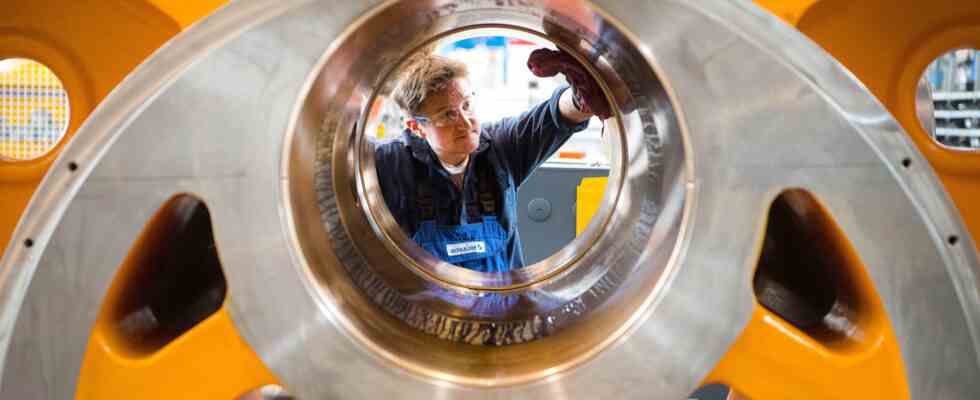Status: 11/22/2022 10:02 a.m
Despite concerns about the economy and lack of energy, the need for highly qualified engineers in mechanical engineering is still high. But the majority of companies can no longer fill all vacancies.
The demand for engineers in German mechanical engineering is higher than ever before. At the same time, there is an ever decreasing number of highly qualified applicants. This is the result of an engineering survey that the industry association VDMA carries out every three years.
Number of vacancies increased
According to this, there are vacancies in 67 percent of the companies. This means that only every third company in the industry can fill vacancies as planned. In the last corresponding survey by the association, the proportion was still around 50 percent.
And the demand for mechanical engineering experts is increasing even further. “Despite many economic uncertainties, for example in connection with energy prices, the need for female engineers is immense,” reported VDMA Vice President Henrik Schunk.
The majority of the 519 companies surveyed (around 60 percent) expect employment to continue growing at least until 2027. This applies above all to the areas of research and development as well as construction.
Record level of employed engineers
The reasons for the lack of engineers lie on the one hand in the demographic development, but also in the competition with other sectors for university graduates. Mechanical engineering is also continuing to grow as an employment sector in Germany. After a dip in the Corona crisis year, the proportion of engineers has now almost reached the record level of 2019. More than 180,000 engineers are currently employed in the industry.
“The thesis of the de-industrialization of Germany is a myth,” says Hartmut Rauen, Deputy General Manager of the VDMA. In the long term, the problem of recruiting young people is the number one challenge for machine builders. The industry strives to attract specialists early on through internships and practical semesters, dual courses of study and company visits for students.
According to the survey, only 14 percent of the companies have so far implemented specific measures to increase the proportion of female employees. The proportion of women among engineers in mechanical engineering is currently 11.3 percent. This is two percentage points more than in the 2019 survey.
Concerns about the export market of China
According to the VDMA, another challenge for the industry is the continuing high level of dependence on the Chinese market. Mechanical engineers, especially in south-west Germany, are concerned about the Chinese leadership’s intention to “integrate” Taiwan by 2027. According to Mathias Kammüller from the VDMA in Baden-Württemberg, that would be the “worst case if it happened.”
For machine builders in Baden-Württemberg, China is the second most important export country after the USA. High-tech machines in particular are still in high demand there, according to Kammüller, who is a shareholder and board member at laser specialist Trumpf. Even if the companies do not assume that relations will deteriorate significantly in the short term, the companies are pinning hopes on further expanding business with the USA.
In the first half of 2022, the export volume to the USA grew by around a fifth compared to the same period last year. Exports to the rest of Asia and South America have also developed well in recent months.

